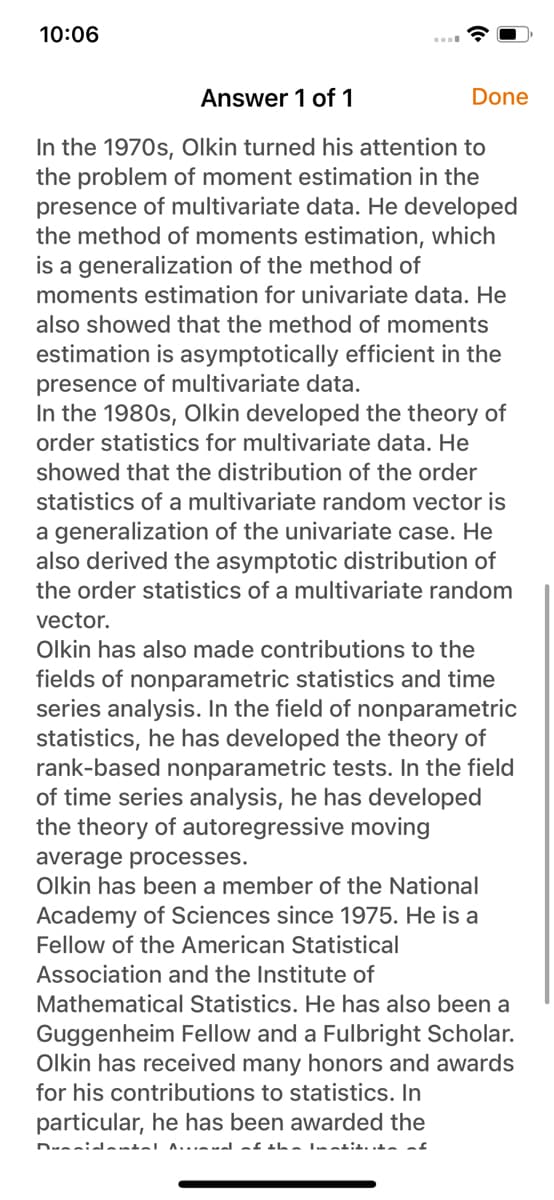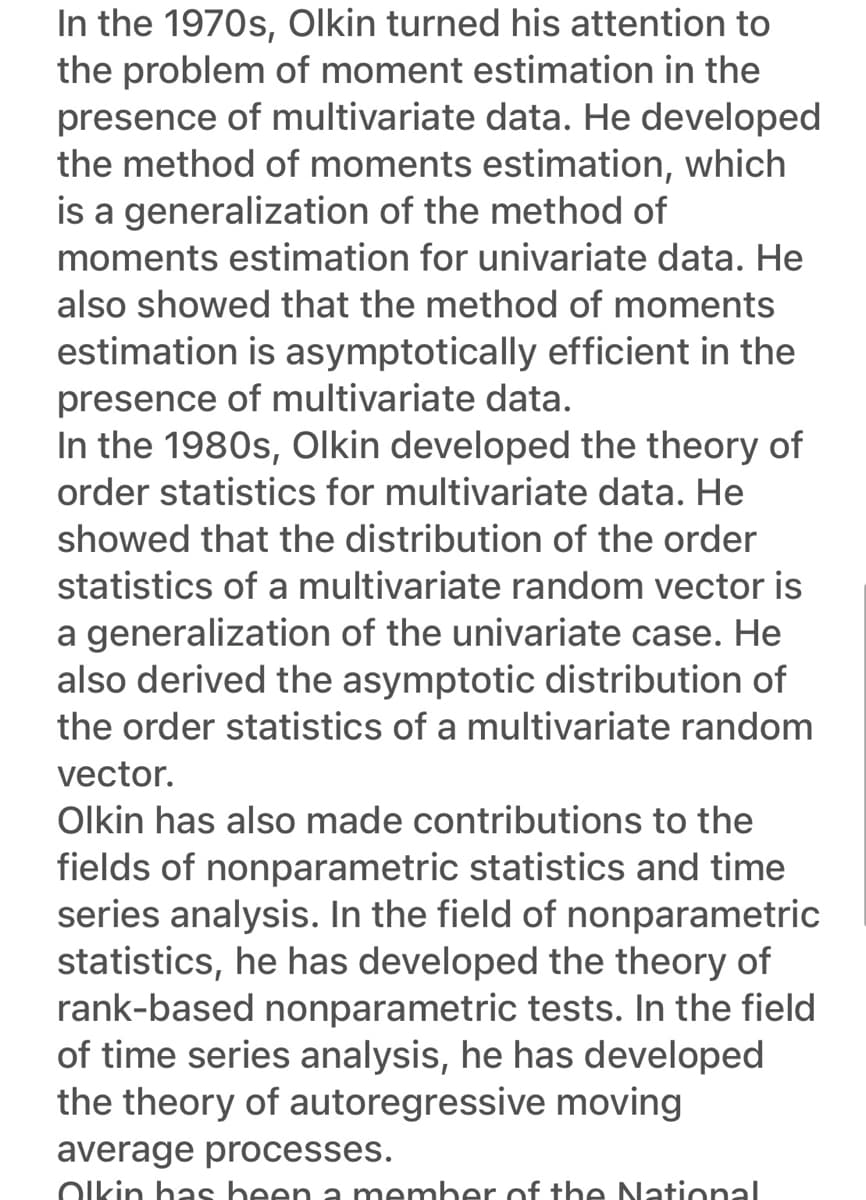In the 1970s, Olkin turned his attention to the problem of moment estimation in the presence of multivariate data. He developed the method of moments estimation, which is a generalization of the method of moments estimation for univariate data. He also showed that the method of moments estimation is asymptotically efficient in the presence of multivariate data.
In the 1970s, Olkin turned his attention to the problem of moment estimation in the presence of multivariate data. He developed the method of moments estimation, which is a generalization of the method of moments estimation for univariate data. He also showed that the method of moments estimation is asymptotically efficient in the presence of multivariate data.
Practical Management Science
6th Edition
ISBN:9781337406659
Author:WINSTON, Wayne L.
Publisher:WINSTON, Wayne L.
Chapter4: Linear Programming Models
Section: Chapter Questions
Problem 84P
Related questions
Question
Read this and then briefly explain history of Marshall olkin transformation?

Transcribed Image Text:10:06
Answer 1 of 1
In the 1970s, Olkin turned his attention to
the problem of moment estimation in the
presence of multivariate data. He developed
the method of moments estimation, which
is a generalization of the method of
moments estimation for univariate data. He
also showed that the method of moments
estimation is asymptotically efficient in the
presence of multivariate data.
In the 1980s, Olkin developed the theory of
order statistics for multivariate data. He
showed that the distribution of the order
statistics of a multivariate random vector is
a generalization of the univariate case. He
also derived the asymptotic distribution of
the order statistics of a multivariate random
vector.
Olkin has also made contributions to the
fields of nonparametric statistics and time
series analysis. In the field of nonparametric
statistics, he has developed the theory of
rank-based nonparametric tests. In the field
of time series analysis, he has developed
the theory of autoregressive moving
Done
average processes.
Olkin has been a member of the National
Academy of Sciences since 1975. He is a
Fellow of the American Statistical
Association and the Institute of
Mathematical Statistics. He has also been a
Guggenheim Fellow and a Fulbright Scholar.
Olkin has received many honors and awards
for his contributions to statistics. In
particular, he has been awarded the
Dumnidantal Anal of the lotitia of

Transcribed Image Text:In the 1970s, Olkin turned his attention to
the problem of moment estimation in the
presence of multivariate data. He developed
the method of moments estimation, which
is a generalization of the method of
moments estimation for univariate data. He
also showed that the method of moments
estimation is asymptotically efficient in the
presence of multivariate data.
In the 1980s, Olkin developed the theory of
order statistics for multivariate data. He
showed that the distribution of the order
statistics of a multivariate random vector is
a generalization of the univariate case. He
also derived the asymptotic distribution of
the order statistics of a multivariate random
vector.
Olkin has also made contributions to the
fields of nonparametric statistics and time
series analysis. In the field of nonparametric
statistics, he has developed the theory of
rank-based nonparametric tests. In the field
of time series analysis, he has developed
the theory of autoregressive moving
average processes.
Olkin has been a member of the National
Expert Solution
This question has been solved!
Explore an expertly crafted, step-by-step solution for a thorough understanding of key concepts.
Step by step
Solved in 3 steps with 2 images

Follow-up Questions
Read through expert solutions to related follow-up questions below.
Follow-up Question
explain history of Marshall olkin transformation only why they develop and when it is first use and who is the inventer
Solution
Recommended textbooks for you

Practical Management Science
Operations Management
ISBN:
9781337406659
Author:
WINSTON, Wayne L.
Publisher:
Cengage,

Practical Management Science
Operations Management
ISBN:
9781337406659
Author:
WINSTON, Wayne L.
Publisher:
Cengage,